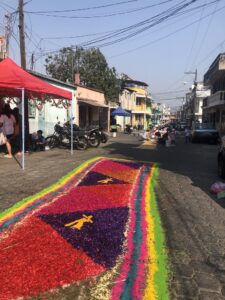Guatemala City
 Guatemala City, the capital of Guatemala, is characterized by a generally diffuse or ‘pandemic’ pattern of urban crime, violence, and insecurity when compared to Medellín and Rio de Janeiro.
Guatemala City, the capital of Guatemala, is characterized by a generally diffuse or ‘pandemic’ pattern of urban crime, violence, and insecurity when compared to Medellín and Rio de Janeiro.
In the city’s urban margins (called colonias) the main actors are local gangs, known as maras, that specialize in extortion of residents, shop owners, bus lines, etc. Policing in Guatemala City suffers from precarious resources and ineffective deployment, even though ambitious and internationally sponsored police reforms were introduced following the peace agreements of 1996, which ended 36 years of armed conflict in the country.
As a result, security provision in Guatemala City rests heavily on non-state providers such as neighborhood watches, vigilantes, and private security companies. At the community level, crime, violence and insecurity have been a growing concern for conventional grass roots actors such as security committees and community development committees (called COCODES). A fairly recent (countrywide) survey of forms of resilience also yielded collective protest, information exchange, petitioning of public authorities, alongside mostly coping and mitigation strategies at the individual and household levels, such as accommodation to and avoidance of violent actors and spaces or reminiscing about a better past.

